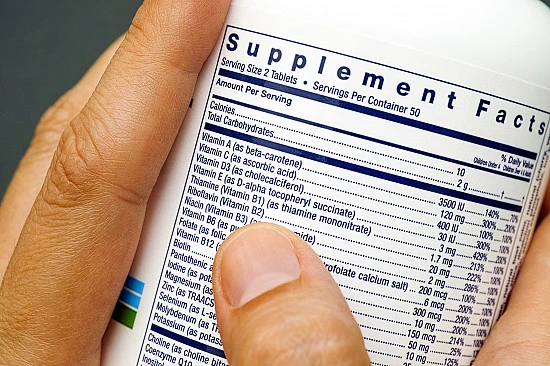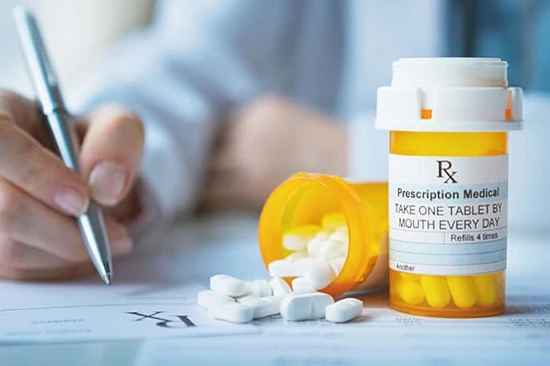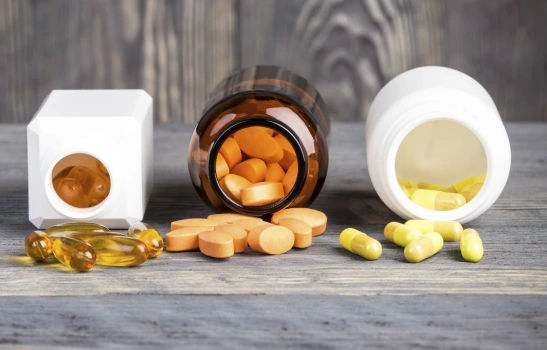Walk into any pharmacy in Dubai or health store in the UAE, and you’ll see shelves of joint supplements promising pain relief and healthier knees. From glucosamine pills to turmeric capsules, the options are endless. But which of these actually work, and which are more hype than help? In this blog, we’ll break down popular knee health supplements available in Dubai, discuss how to read their labels, recommend dosages, and what science says about their effectiveness. (Don’t worry – this is informational, not promotional. We’re not selling anything, just giving you the facts!)
Popular Knee Health Supplements in the UAE
Here are some of the most popular supplements that expats and locals alike use for knee and joint health:
- Glucosamine and Chondroitin: Perhaps the best-known joint supplements. Glucosamine is a compound that helps form cartilage, and chondroitin is a component of cartilage that helps it retain water. They’re often sold together in one pill. Many people take them for osteoarthritis. In fact, in some European countries, glucosamine and chondroitin are prescribed as a treatment for knee osteoarthritis arthritis.org . In Dubai, you’ll find brands from the US, Europe, and India selling these. What science says: Research is mixed. Some studies suggest they might relieve pain and improve function in mild osteoarthritis, but other large studies found no significant benefit over placebo arthritisaustralia.com.au. Leading arthritis organizations say glucosamine/chondroitin may help some individuals’ pain and stiffness, and they are generally safe to try arthritis.org arthritisaustralia.com.au. They’re not a quick fix or a guaranteed cure – if they help, it’s usually modest and takes a few weeks or months to notice.
- Omega-3 Fish Oil: Omega-3 fatty acids (EPA and DHA, found in fish oil) are known for anti-inflammatory properties. People take fish oil to help with joint inflammation. It’s proven to help rheumatoid arthritis (an inflammatory joint disease) by reducing stiffness and pain mayoclinic.org. For osteoarthritis, evidence is less clear – some studies show improvement in pain, others don’t show much effect arthritis.org. Nonetheless, many orthopedic specialists in the UAE won’t object if you want to take fish oil; it’s heart-healthy and might help joint pain, especially if inflammation is part of the issue. Typical dose is around 1000 mg fish oil daily (with about 300 mg combined EPA/DHA omega-3 content).
- Turmeric (Curcumin): Turmeric is a spice common in South Asian and Middle Eastern cooking, and its active ingredient curcumin has anti-inflammatory effects. It’s available in capsules often labeled as curcumin. People take it for joint pain and arthritis. Some clinical trials have shown curcumin can modestly reduce arthritis pain – potentially as effectively as ibuprofen in certain studies – but more research is needed. It’s popular in the UAE, given the cultural familiarity with turmeric. Ensure you choose a supplement that includes black pepper extract (piperine) or some form of enhanced absorption, because curcumin alone isn’t absorbed well. Dose varies, commonly 500-1000 mg of curcumin extract per day.
- Collagen Peptides: Collagen is a protein that makes up cartilage, tendons, and other connective tissues. Supplements often contain collagen hydrolysate or undenatured type II collagen (UC-II). The idea is that ingesting collagen peptides might support your body’s cartilage repair or reduce inflammation. Some small studies indicate collagen supplements can improve joint pain in athletes and people with mild arthritis, possibly by reducing joint inflammation or providing building blocks for cartilage. You can find collagen powders (to mix in drinks) or pills in Dubai’s nutrition stores. These are generally safe; plus, collagen can also benefit skin and hair – a bonus many consumers like.
- Methylsulfonylmethane (MSM): Often combined with glucosamine and chondroitin in joint formulas, MSM is a sulfur-containing compound that might have anti-inflammatory and pain-reducing effects. The evidence is limited, but some people swear by it to reduce joint soreness. MSM is considered safe in moderate doses (common total daily dose in studies is 1500-3000 mg).
- Vitamin D and Calcium: While not “joint lubricants” per se, these are crucial for bone health. Vitamin D deficiency is extremely common in the UAE – by some estimates, up to 90% of people in the region are deficient in Vitamin D burjeel.com due to limited sun exposure (staying indoors to avoid heat, using sunscreen, etc.). Low vitamin D can cause bone and muscle pain and is linked to worse arthritis outcomes. Calcium is important for bones as well. If you have knee issues, especially if they’re related to bone (like osteoporosis or subchondral bone edema under the cartilage), ensuring adequate calcium and vitamin D is important. Many people here take a combined supplement (like Calcium 600 mg with Vitamin D3 1000 IU) daily. Always check with a doctor – they can do a blood test for vitamin D levels and advise the right dose (often, folks need a high-dose course of D if they are very low).
- Boswellia (Frankincense): An herbal extract from the Boswellia serrata tree (frankincense, culturally known in the region), which has anti-inflammatory properties. It’s found in some joint supplements. Some studies show Boswellia can reduce pain and improve function in osteoarthritis, possibly by preventing cartilage loss. Doses around 100-250 mg of Boswellia extract (standardized to boswellic acids) are used. Given frankincense’s regional significance, it’s an interesting natural remedy that merges traditional and modern approaches.
- Others: There are many more – ginger extract, SAM-e, Vitamin K2, hyaluronic acid supplements, devil’s claw, etc. These are less commonly used but you might encounter them in comprehensive joint formulas. Each has varying degrees of evidence (ginger, for example, has some anti-inflammatory effect; SAM-e has some studies showing pain relief on par with celecoxib, a prescription drug, but it’s expensive and not widely used here).
When choosing a supplement, think about your specific needs. For example, if you have early-stage knee osteoarthritis (Grade 1 OA), some doctors in the UAE might suggest trying glucosamine and chondroitin as a first-line supplement approach, since pharmaceutical options for such early disease are limited and these supplements might support cartilage health arthritis.org. Conversely, if your main issue is inflammatory (like swelling), they might suggest fish oil or curcumin for their anti-inflammatory benefits.
Reading Supplement Labels: What to Look For

It’s important to be an informed consumer. When you pick up a bottle of joint supplement, check the label for:
- Active Ingredient Names and Forms: For example, “Glucosamine sulfate 1500 mg” and “Chondroitin sulfate 1200 mg” per serving. These are the clinically studied doses
arthritisaustralia.com.au. If a label says a pill has only 500 mg glucosamine, you’d likely need to take 3 pills to reach an effective dose. Also note forms: glucosamine sulfate is typically preferred over glucosamine hydrochloride (some evidence suggests the sulfate form might be more effective
arthritisaustralia.com.au). - Dosage per Serving: How many pills is one serving? Sometimes one “serving” is 3-4 capsules! Make sure you’re prepared to take the required number to get the dose used in research. For instance, a typical effective dose for glucosamine is 1500 mg per day, and chondroitin around 800–1200 mg per day arthritisaustralia.com.au. If a product says one tablet is 500 mg glucosamine and 400 mg chondroitin, you likely need 3 tablets daily. Understanding this prevents under-dosing or running out of the product sooner than expected.
- Quality Certifications: Look for marks like GMP (Good Manufacturing Practice), or approval from local health authorities. In the UAE, many supplements are imported. While the UAE has regulations, it’s good to see if the product has been tested by third parties (for example, US Pharmacopeia (USP) verification, NSF certification, or others). This ensures what’s on the label is truly in the pill and that it’s not contaminated.
- Expiration Date: Supplements can lose potency over time. Make sure the bottle isn’t near expiry, especially if you’re buying a large supply.
- Serving Count: How many servings in the bottle? If you need to take 3 pills a day and the bottle has 90 pills, that’s only a 30-day supply.
- Additional Ingredients: Sometimes, joint supplements include extras like Vitamin D, Calcium, MSM, or herbal extracts. This can be convenient (fewer bottles to take). But ensure none of the extra ingredients conflict with anything you’re already taking or are at unsafe levels. For example, some “all-in-one” joint formulas might have a bit of manganese or other minerals; just make sure you’re not doubling up excessively if you take a separate multivitamin.
- Allergens: Check for any allergens or ingredients you avoid – e.g., some glucosamine is derived from shellfish (shrimp/crab shells). If you have a shellfish allergy, look for a vegetarian glucosamine source or one labeled allergen-free farmacoinc.com.
- Instructions: The label will tell you when and how to take it (e.g., “take with food” or “take in divided doses”). Following these can improve absorption and effectiveness. For instance, it’s often recommended to take glucosamine with meals.
A quick example of label reading: Suppose you pick up a bottle in Dubai that says “Joint Support Formula: Each serving (2 tablets) provides 1500 mg Glucosamine Sulfate, 1200 mg Chondroitin Sulfate, 500 mg MSM.” This indicates that if you take 2 tablets a day, you get the generally recommended doses. You’d also check that it has, say, 60 servings (which means the bottle of 120 tablets lasts 60 days if you take 2 a day). If a label looks under-dosed (like only 400 mg chondroitin per serving), you might opt for a different brand that meets the recommended range.
Recommended Dosages and When to Use Them

Let’s outline standard dosages for the common supplements and scenarios where you might consider using them:
- Glucosamine & Chondroitin: Dosage: Glucosamine sulfate 1500 mg per day, Chondroitin sulfate ~800-1000 mg per day (often split into 2-3 doses or all at once) arthritisaustralia.com.au. When to use: Best evidence is for early-stage osteoarthritis or moderate joint wear (Grade 1 or 2 OA). If you have mild knee pain or stiffness and an X-ray shows minor joint space narrowing, a 3-6 month trial of glucosamine/chondroitin might be reasonable arthritis.org, arthritisaustralia.com.au. Also, people who cannot take NSAID pain relievers due to side effects sometimes use these as an alternative. Don’t expect immediate results – give it at least 8-12 weeks. If, after 6 months, you feel no difference, it might not be effective for you.
- Fish Oil (Omega-3): Dosage: Usually 1000–3000 mg of fish oil daily (with 300-900 mg combined EPA/DHA content). Some arthritis studies used higher doses (like 3-4 grams of EPA/DHA), but you’d typically start lower unless advised. When to use: If you have a lot of inflammation (e.g., your knees swell, or you have another inflammatory condition). Also, if your diet is low in oily fish, an omega-3 supplement can be generally beneficial. It may take a couple of months to see an effect on joint pain. Bonus: Helps cardiovascular health.
- Turmeric/Curcumin: Dosage: 500 mg curcumin extract 2-3 times a day (total ~1000-1500 mg daily) is often used in studies, usually with piperine (black pepper) for absorption. Some newer formulations use liposomal or nanoparticle curcumin to enhance uptake (check the label for any special instructions). When to use: If you prefer a herbal approach for mild-to-moderate pain or you want to reduce reliance on NSAIDs. People with early arthritis or even those with muscle pain from exercise might try curcumin. It often takes a few weeks to notice benefits. Ensure no gallbladder issues (as turmeric can increase bile flow).
- Collagen Peptides: Dosage: For hydrolyzed collagen, about 10 grams per day (often as a powder mixed in water/juice). For UC-II (undenatured type II collagen), a much smaller dose ~40 mg once daily is typical. When to use: Possibly for chronic joint discomfort or stiffness. Some athletes use collagen to help with joint recovery. It’s something you’d use long-term (months) to see if it helps. Given collagen’s safety profile, it’s fine to use as a daily supplement for general connective tissue support.
- MSM: Dosage: 1500-3000 mg per day (can be split into morning and evening doses). Often, if it’s in a combo pill, just take whatever the label’s serving is. When to use: May be used alongside glucosamine/chondroitin to enhance pain relief, or on its own for general joint aches. Give it a few weeks trial. MSM also might help some people with exercise recovery.
- Vitamin D: Dosage: If you’re deficient, a doctor might prescribe high doses like 50,000 IU weekly for a short period. For maintenance, many adults take 1000-2000 IU daily. When to use: Basically everyone who is low in vitamin D should correct it – this is particularly relevant in the UAE given widespread deficiency burjeel.com. Adequate vitamin D (target blood level often 30-50 ng/mL) ensures better bone health and muscle function, which in turn supports your knees. Also, some studies suggest that vitamin D insufficiency can worsen knee osteoarthritis pain and progression.
- Calcium: Dosage: Aim for about 1000 mg of calcium a day from all sources (diet + supplements) for most adults, 1200 mg for older adults. If your diet has dairy and leafy greens, you might already get a good amount. If not, a supplement of 500-600 mg calcium (often calcium citrate or calcium carbonate) once or twice a day with meals can help meet needs. When to use: If you have osteoporosis or low dietary intake. Not directly for knee pain, but for overall bone strength; remember, knees are joints between bones, and strong bones help keep the joint healthy.
- Boswellia and others: Dosage: Boswellia around 100-250 mg of extract (standardized to ≥30% boswellic acids) taken 1-3 times daily in studies. Ginger, about 500 mg twice a day if used. When to use: As an alternative or addition to curcumin for anti-inflammatory effect. If you prefer Ayurvedic or herbal medicine, Boswellia is a promising option to try for a couple of months to see if it eases pain.
Always remember: “Natural” doesn’t always mean “risk-free.” For example, fish oil can have a blood-thinning effect (important to know if you’re on warfarin or scheduled for surgery). Glucosamine might affect blood sugar (diabetics should monitor) and, as noted, shellfish-allergic individuals need a safe source farmacoinc.com. High doses of curcumin could upset your stomach. So while these supplements are generally safe, it’s wise to consult with a healthcare provider or pharmacist, especially if you have other medical conditions or are taking medications.
Do You Really Need Supplements? – Addressing Dietary Gaps

Dietary supplements should ideally fill a gap in your diet or address a specific deficiency. They are called “supplements” for a reason – they supplement, not replace, a healthy diet and lifestyle. Consider the following before deciding on a supplement regimen:
- Diet First: Are you eating a balanced diet? Nutrients like omega-3, calcium, vitamin D, etc., can often be obtained from food and sun exposure (vitamin D via sunlight on skin) – though the latter is tricky in the UAE. If you eat oily fish twice a week, plenty of fruits and vegetables (many have antioxidants that help inflammation), dairy or fortified alternatives for calcium, and get some sun, you might need fewer supplements.
- When Supplements Help: If you simply cannot get enough from diet or have higher needs, supplements are useful. Example: If you have lactose intolerance and can’t consume dairy, a calcium + vitamin D supplement is almost a must to protect your bones. Or if you dislike fish, an omega-3 pill can cover that base.
- Joint-specific needs: People with early arthritis might take glucosamine/chondroitin hoping to slow cartilage loss. While evidence is mixed, some guidelines (like the European ESCEO guideline) do recommend trying pharmaceutical-grade glucosamine and chondroitin in knee OA because of their safety and potential benefits esceo.org. On the other hand, if you’re 25 and have healthy joints, taking glucosamine “just because” probably isn’t necessary – better to invest in good exercise and nutrition.
- Aging and Wear-and-Tear: As we age or for those who do heavy physical work, the joints undergo wear. Supplements like collagen or glucosamine might be considered “maintenance” in such cases. They won’t work miracles, but some individuals feel they help them stay flexible.
- Chronic Conditions: If you have a chronic joint condition and are on medication, some supplements may complement your treatment. For instance, rheumatoid arthritis patients on medication might still take fish oil and vitamin D to help reduce inflammation and support bone health (since RA and steroids can weaken bones).
- Placebo effect (which isn’t bad): One aspect to acknowledge: some benefits people feel from supplements may be placebo effect – but if someone perceives less pain and can move more, that’s still a win. The goal is to feel better. As long as a supplement is safe, even a placebo effect is not “fad” if it improves quality of life. The problem is when unproven supplements drain your wallet with no real benefit. So, we focus on those with at least some scientific backing.
UAE Market Insights: Consumers in the UAE are quite health-conscious, and there’s a trend of favoring “natural” remedies. It’s common to see expats picking up joint supplements as they age or if they’re athletic (to prevent issues). Pharmacies in Dubai carry popular international brands like Solgar, Now Foods, Blackmores, etc., as well as regional brands. One thing to note is that supplements can be pricier here than back home due to import costs. Some people order online or stock up when traveling. Just ensure any product you use is legitimate and, if shipped in, complies with local regulations.
Additionally, we’ve seen that Vitamin D is practically the top-selling supplement in the UAE (rightly so, given deficiency rates). In fact, “Vitamin D” is reportedly one of the most searched health terms on Google by UAE residents thenationalnews.com. This indicates people are aware and concerned about it. Since vitamin D and calcium are foundational for musculoskeletal health, addressing those needs can in turn help your joints function better (a stronger skeleton means less stress on joints and surrounding soft tissue).
Glucosamine & Chondroitin in Early Osteoarthritis: A Closer Look
Because glucosamine and chondroitin are so widely used, let’s elaborate a bit more on them:
- What the UAE doctors say: Many orthopedic and rheumatology specialists in Dubai will say, “It might help, and it won’t hurt.” They are safe for most people and may be worth a trial if you have knee OA that’s not severe enough to warrant surgery. If you have Grade 1 osteoarthritis (meaning only mild wear on X-ray, perhaps some discomfort with heavy activity), these supplements could be part of a conservative management plan along with exercise and weight control.
- Evidence vs. Anecdotes: Clinical trials have had mixed outcomes. Some older trials showed modest pain relief, especially when glucosamine was taken for many months. Others, like the GAIT trial in the US, found no significant difference versus placebo overall – except in a subset with moderate-to-severe pain, one analysis found glucosamine+chondroitin might have helped more than placebo. This inconsistency in evidence leads to different guidelines saying different things. The Arthritis Foundation notes that while high-quality studies show little benefit, these supplements are safe and worth a try for osteoarthritis arthritisaustralia.com.au arthritisaustralia.com.au. Australian and UK arthritis groups echo that sentiment – not strong endorsements, but acknowledging some people feel better on them arthritisaustralia.com.au arthritisaustralia.com.au.
- Timeframe: If you start glucosamine today, don’t expect your knees to feel brand new next week. Generally, give it at least 8 weeks, preferably 12. If after 3-6 months there’s zero improvement, then it’s likely not effective for you and you could stop. If you do feel improvement, you can consider continuing, as long as it’s helping.
- Grade 1 vs. Grade 4 knees: In advanced osteoarthritis (Grade 4, bone-on-bone), glucosamine and chondroitin probably won’t reverse anything. At that stage, the joint damage is structural and often needs more potent interventions (injections, realignment osteotomy, or joint replacement). But in Grade 1 or 2, where you still have cartilage left to “protect,” these supplements might have a structure-modifying effect (some lab studies suggest they can slow cartilage degradation). This is still a topic of debate, but long-term European studies (like the MOVES trial, etc.) indicated those who took these had slightly less joint space narrowing over years than those who didn’t – hence why European guidelines are a bit more favorable to them esceo.org.
- Quality matters: If you decide to take glucosamine/chondroitin, pick a reputable brand. Some cheap supplements may not contain effective amounts of the active ingredients. In the UAE, look for known brands or those recommended by doctors. The label should clearly state the dose (as discussed earlier). Pharmaceutical-grade glucosamine (like Dona, which is a prescription-grade in some countries) was used in many positive trials. Over-the-counter versions can work too, but ensure you’re getting the proper dose.
Supplements vs. Medications vs. Lifestyle: A Balanced Approach

It’s worth emphasizing: Supplements are just one piece of the puzzle. They work best in conjunction with other measures:
- Keeping a healthy weight (as we detailed in the weight management article) is crucial for knee health – no supplement can compensate for excessive load on the joint.
- Exercising to strengthen the muscles around the knee (quads, hamstrings) will do wonders for knee stability and pain reduction. Even the best supplement won’t rebuild muscle for you.
- If you have significant knee pain, don’t rely on supplements alone – see a doctor. You might need physiotherapy, proper diagnosis, or medications (like NSAIDs or analgesics) for flare-ups. Supplements can be adjuncts.
- Some supplements might reduce the need for medications. For example, if turmeric or fish oil reduces your daily pain a bit, you might find you don’t need to take ibuprofen as often – that’s a win, considering long-term NSAID use can have side effects.
- Avoiding Fads: Be wary of any product that sounds too good to be true (“rebuilds knees in 7 days!” or “secret cure doctors don’t want you to know”). Stick to those we’ve mentioned, as they have at least some scientific rationale and study behind them. The supplements list isn’t exhaustive, but we focused on ones with the most evidence. There will always be exotic new pills on the market – research them or ask a professional before trying. UAE consumers sometimes get caught in MLM (multi-level marketing) schemes for “miracle” joint drinks or such – be cautious and do your homework.
Final Thoughts
Joint supplements can play a role in managing knee health, especially for those with mild issues or as a preventive measure for those at risk. In the UAE, with our unique mix of modern and traditional health practices, many people incorporate things like turmeric in their diet or take a course of vitamins to ensure their joints stay in shape. Supplements like glucosamine, chondroitin, fish oil, and collagen are widely available and can be part of a holistic approach to knee care.
However, it’s important to set realistic expectations. Supplements are not magic potions – their effects are usually subtle and gradual. The best strategy for healthy knees combines a balanced diet (rich in nutrients), regular low-impact exercise, maintaining a healthy weight, and using supplements wisely to fill gaps or provide a little extra support. Always consider consulting with a healthcare professional before starting any supplement regimen, to ensure it’s appropriate for your individual health profile.
In summary, sort the facts from the fads by focusing on well-researched supplements, reading labels carefully for proper dosages, and being patient to see if they work for you. Your knees are worth the effort – whether it’s a hike in the Hajar Mountains or simply climbing the stairs at the office, keeping them healthy will keep you moving and enjoying life in Dubai and beyond.
References: Scientific evidence on glucosamine & chondroitin efficacy arthritisaustralia.com.au arthritisaustralia.com.au; Recommended doses for joint supplements arthritisaustralia.com.au; UAE Vitamin D deficiency prevalence burjeel.com; Arthritis Foundation on supplement use arthritis.org.For personalized advice on joint health and supplement use, consult with Dr Azam Khan, a specialist in orthopedics and sports medicine.
